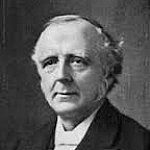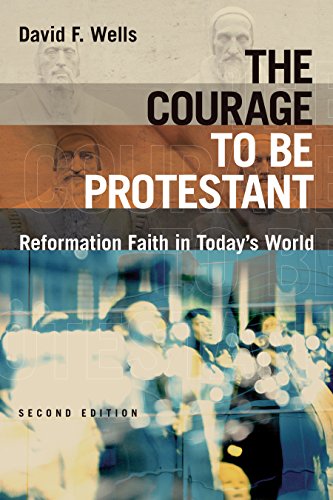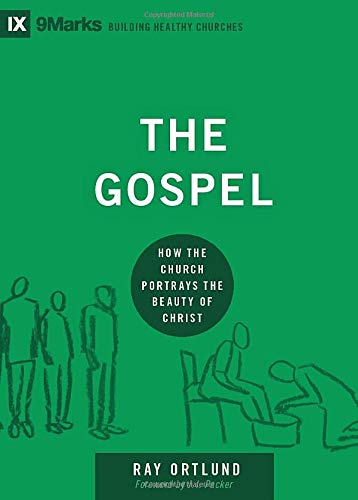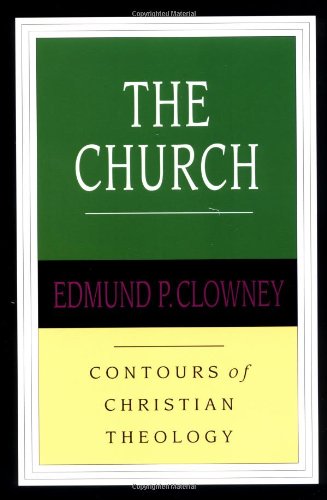Quotes about Church-Health
Few things are sapping the strength of the church of Jesus Christ more than the unreconciled state of so many believers. So many have matters deeply imbedded in their craws, like iron wedges forced between themselves and other Christians. They can’t walk together because they do not agree. When they should be marching side by side through this world taking men captive for Jesus Christ, they are acting instead like an army that has been routed and scattered and whose troops in their confusion have begun fighting among themselves. Nothing is sapping the church of Christ of her strength so much as these unresolved problems, these loose ends among believing Christians that have never been tied up. There is no excuse for this sad condition, for the Bible does not allow for loose ends. God wants no loose ends.
The church’s spiritual malaise cannot be cured by resort to the resources of idolatrous society on which…Christians have been too dependent, or to their own resources. Their illness can be remedied only by a renewed relationship with Christ.
Revelation, The New International Greek Testament Commentary, Eerdmans, www.eerdmans.com, 1999, p. 306.
We are constantly on a stretch, if not on a strain, to devise new methods, new plans, new organizations to advance the Church and secure enlargement and efficiency for the gospel. This trend of the day has a tendency to lose sight of the man or sink the man in the plan or organization. God’s plan is to make much of the man, far more of him than of anything else. Men are God’s method. The Church is looking for better methods; God is looking for better men.
What the Church needs today is not more machinery or better [machinery], not new organizations or more and novel methods, but men whom the Holy Ghost can use, men of prayer, men mighty in prayer. The Holy Ghost does not flow through methods, but through men. He does not come on machinery, but on men. He does not anoint plans, but men, men of prayer.
Wherever we find the Word of God surely preached and heard, and the sacraments administered according to the institution of Christ, there, it is not to be doubted, is a church of God.
Those who have found the presence and power of the spirit of Christ breathing in their ministers, either to their conversion, or edification, will be slow to change such a ministry of faith, and holiness, for the liberty of church order.
A Puritan Golden Treasury, compiled by I.D.E. Thomas, by permission of Banner of Truth, Carlisle, PA. 2000, p. 57.
The first mark of a healthy church is expositional preaching. It is not only the first mark; it is far and away the most important of them all, because if you get this one right, all of the others should follow… If you get the priority of the Word established, then you have in place the single most important aspect of the church’s life, and growing health is virtually assured, because God has decided to act by His Spirit through His Word… The congregation’s commitment to the centrality of the Word coming from the front, from the preacher, the one specially gifted by God and called to that ministry, is the most important thing you can look for in a church.
Nine Marks of a Healthy Church, Crossway, 2000, p. 25, 38. Get this book!
A healthy church has a pervasive concern with church growth – not simply growing numbers but growing members. A church full of growing Christians is the kind of church growth I want as a pastor. Some today seem to think that one can be a “baby Christian” for a whole lifetime. Growth is seen to be an optional extra for particularly zealous disciples. But be very careful about taking that line of thought. Growth is a sign of life. Growing trees are living trees, and growing animals are living animals. When something stops growing, it dies.
Nine Marks of a Healthy Church, Crossway, 2000, p. 200. Get this book!
The culture to which (the church) would conform in order to be relevant becomes so inextricably entwined with antagonism to the Gospel that to conform to it must mean a loss of the Gospel itself. In such a day, we must re-hear the Bible and re-imagine the concept of successful ministry not as necessarily immediately fruitful but as demonstrably faithful to God’s Word… Simply put, we need churches that are self-consciously distinct from the culture. We need churches in which the key indicator of success is not evident results but persevering biblical faithfulness. We need churches that help us recover those aspects of Christianity that are distinct from the world, and that unite us.
Nine Marks of a Healthy Church, Crossway, 2000, p. 14. Get this book!
David Wells has observed, “It is very easy to build churches in which seekers congregate; it is very hard to build churches in which biblical faith is maturing into genuine discipleship.”
Discipling, ©9Marks. Website: www.9Marks.org. Email: [email protected]. Toll Free: (888) 543-1030. Used by Permission. Page 19.
Churches don’t need programs so much as they need cultures of discipling, cultures where each member prioritizes the spiritual health of others.
Discipling, ©9Marks. Website: www.9Marks.org. Email: [email protected]. Toll Free: (888) 543-1030. Used by Permission. Page 68.
Far too much ministry today is undertaken without any concern for holiness. We’ve found that changing the way we do church is easier than changing the way we are. We’ve found that we are not sufficiently unlike anyone else to garner notice, so we’ve attempted to become just like everyone else instead.
The Secret to Reaching the Next Generation by Kevin DeYoung taken from Don’t Call it a Comeback, edited by Kevin DeYoung, copyright 2011, Crossway Books, a division of Good News Publishers, Wheaton Illinois 60187, www.crosswaybooks.org, p. 26. Get this book!
They may seem weak in the eyes of the worldly strong. They may seem foolish in the eyes of the worldly wise. But the Gospel message is the power of God unto salvation, and the Gospel means are effectual to salvation. These are the Spiritual instruments given by God with which Christian congregational Spiritual life is nurtured, the Spirit’s tools of grace and growth in grace appointed by God in the Bible.
The Ordinary Means of Growth, Tabletalk, October 2007, p. 14. Used by Permission of Ligonier Ministries.
What will a church look like that is committed to the ordinary means of grace? It will be characterized by love for expository preaching, passion for worship, delight in truth, embrace of the Gospel, the Spirit’s work of conversion, a life of godliness; robust family religion; biblical evangelism; biblical discipleship, biblical church membership, mutual accountability in the church, biblical church leadership, and a desire to be a blessing to the nations. Along with this all, there will be an unapologetic, humble, and joyful celebration of the transcendent sovereignty of the one, true, triune God in salvation and all things.
The Ordinary Means of Growth, Tabletalk, October 2007, p. 15. Used by Permission of Ligonier Ministries.
Most human organizations that fall short of their goals do so not because of stupidity or faulty doctrines, but because of internal decay and rigidification. They grow stiff in the joints. They get in a rut. They go to seed.
In God’s divine design, every “biological family” when converted to Christ becomes the “church in miniature”… And as these families mature and reflect the fullness of Christ, they become the strong building blocks of the church. In this sense, mature families automatically create mature churches.
Elders and Leaders, Moody, 2003, p. 126. Get this book!
Many churches are like an ailing lung with only a few cells doing all the breathing. The real life of a church is in a few faithful people who keep it from being an animated corpse.
The temple of truth has never suffered so much from woodpeckers on the outside as from termites within.
The great, God-blessed churches in the world today have one common characteristic: an insistence upon an exposition of God’s infallible Word.
What scares me is the anti-intellectual, anti-critical thinking philosophy that has spilled over into the church. This philosophy tends to romanticize the faith, making the local church into an experience center… Their concept of “church” is that they are spiritual consumers and that the church’s job is to meet their “felt needs.”
Copied from Right Thinking by Bill Hull copyright 1985, p. 66. Used by permission of NavPress – www.navpress.com. All rights reserved
It is no secret that Christ’s Church is not in good health in many places of the world. She has been languishing because she has been fed, as the current line has it, “junk food;” all kinds of artificial preservatives and all sorts of unnatural substitutes have been served up to her. As a result, theological and biblical malnutrition has afflicted the very generation that has taken such giant steps to make sure its physical health is not damaged by using foods or products that are harmful to their bodies. Simultaneously a worldwide spiritual famine resulting from the absence of any genuine publication of the Word of God (Amos 8:11) continues to run wild and almost unabated in most quarters of the Church.
Without theological vision, a vision that wrestles with what it means to be God’s people, in God’s world, under God’s rule, the church inevitably loses both its identity as God’s possession and its purpose as the people and place where God’s glory is displayed in the gospel and God’s praise is declared.
Systematic Theology Tools by Michael Lawrence taken from Biblical Theology by Michael Lawrence, copyright 2010, Crossway Books, a division of Good News Publishers, Wheaton Illinois 60187, www.crosswaybooks.org. Page 110.
[Wrongly regarding church involvement]: Christians can think it’s fine to attend a church indefinitely without joining; Christians think of getting baptized apart from joining; Christians take the Lord’s Supper without joining; Christians view the Lord’s Supper as their own private, mystical experience for Christians and not as an activity for church members who are incorporated into body life together; Christians don’t integrate their Monday-to-Saturday lives with the lives of other saints; Christians assume they can make a perpetual habit of being absent from the church’s gathering a few Sundays a month or more; Christians make major life decisions (moving, accepting a promotion, choosing a spouse, etc.) without considering the effects of those decisions on the family of relationships in the church or without consulting the wisdom of the church’s pastors and other members; Christians buy homes or rent apartments with scant regard for how factors such as distance and cost will affect their abilities to serve their church; Christians don’t realize that they are partly responsible for both the spiritual welfare and the physical livelihood of the other members of their church, even members they have not met. When one mourns, one mourns by himself. When one rejoices, one rejoices by herself.
We’ve Been Approaching it All Wrong by Jonathan Leeman taken from Church Membership by Jonathan Leeman, copyright (2012), Crossway Books, a division of Good News Publishers, Wheaton Illinois 60187, www.crosswaybooks.org. p. 23-24.
The American brand of cultural Christianity results from well-intending adults handing out the candy of cheap grace to five-year-olds and twenty-five-year-olds alike. You ask them if they want to be with mommy and daddy in heaven or pressure them into walking an aisle. The point is, you play on their fears, emotions, or appetites to get quick, unconsidered professions of faith. Then you immediately affirm those professions.
Must Membership Look the Same Everywhere? by Jonathan Leeman taken from Church Membership by Jonathan Leeman, copyright (2012), Crossway Books, a division of Good News Publishers, Wheaton Illinois 60187, www.crosswaybooks.org, p. 122.
Look for the ones who are poor in spirit; who mourn their sin; who aren’t entitled, always insisting on their own way, but are meek; who are sick to death of sin and all its nonsense and so hunger and thirst for righteousness like it is water. When you find people like that, make sure they know who Jesus is. Make sure Jesus is the one who fills their impoverished spirit, who has forgiven their sins, who receives their life and worship, and whose righteousness they depend upon and pursue. When you find such people, tell them to join!
What are the Standards for Membership? by Jonathan Leeman taken from Church Membership by Jonathan Leeman, copyright (2012), Crossway Books, a division of Good News Publishers, Wheaton Illinois 60187, www.crosswaybooks.org, p. 88.
Whenever the true message of the cross is abolished, the anger of hypocrites and heretics eases…and all things are in peace. This is a sure token that the devil is guarding the entry of that house, and that the pure doctrine of God’s Word has been taken away. The church, then, is in the BEST state when Satan assaileth it on every side…both with subtle sleights, and outright violence. And (likewise) it is in the WORST state, when it is most at peace!
Someone has said that the marks of a strong church are wet eyes, bent knees, and a broken heart. We’ll never be powerful until we let God be God and jealously guard His honor.
Pastor to Pastor, Kregel, 1998, p. 99. Get this book!
Committees are necessary. Even more important is vision and the ability to move the congregation toward the goals of the church. But when push comes to shove, it’s the ministry of the Word that gives us our greatest impact. A church can usually put up with weak administration if it has effective preaching. But there’s nothing quite as pathetic as people coming to church and returning home without any spiritual food.
Pastor to Pastor, Kregel, 1998, p. 104. Get this book!
Satan is most effective in the church when he comes not as an open enemy, but as a false friend; not when he persecutes the church, but when he joins it; not when he attacks the pulpit, but when he stands in it.
Because God is so concerned for the holiness of His people, they should be equally concerned. The church cannot preach and teach a message it does not live and have any integrity before God, or even before the world. Yet in many churches where there is no tolerance for sin in principle there is much tolerance for it in practice. And when preaching becomes separated from living, it becomes separated both from integrity and from spiritual and moral effectiveness. It promotes hypocrisy instead of holiness. Divorcing biblical teaching from daily living is compromise of the worst sort. It corrupts the church, grieves the Lord, and dishonors His Word and His name.
The measure of a church, the character of a church is not made known, by how well it entertains young people; the character of a church is made known by how well it embraces old people. The character of a church is not how well it can capture the lighthearted, who are alive and young; its how well it can capture and hold the heart broken…the grieving. How does it deal with the suffering? How does it deal old age? How does it deal with cancer How does it deal with love?…loving people at the worst times of life? That’s the measure of a church. Anybody can draw a crowd; anybody can put on an event. Anybody can do a rock concert and attract young people who are just looking for the next gig. The measure of a church is, how does it sustain relationships with people all the way to the grave…fully embrace them, love them, right unto death. That’s the measure of a church… The measure of this church can not be known by sitting here on a Sunday and listening to this that’s going on up here… The measure of this church is seen in the hardest times of life, the most grievous times of life, the agonies of life, long drawn-out slow deaths or terrible accidental deaths; and how this church embraces people at the low points and the hard points of life. That’s the measure of a church.
It’s easy to stand on the sidelines and find fault with the church’s weaknesses, deficiencies and ineffectiveness; it’s another thing to become involved in fixing the problem by becoming part of the solution. More dedication, more involvement, more prayer, more effort, more devotion, more service, and more humble cooperation and participation in the activities of the church are the appropriate responses to the situation.
The church which is not a missionary church will be a missing church when Jesus comes.
Gospel doctrine creates a gospel culture. The doctrines of grace create a culture of grace, as Jesus Himself touches us through His truths. Without the doctrines, the culture alone is fragile. Without the culture, the doctrines alone appear pointless. For example: The doctrine of regeneration creates a culture of humility (Ephesians 2:1-9). The doctrine of justification creates a culture of inclusion (Galatians 2:11-16). The doctrine of reconciliation creates a culture of peace (Ephesians 2:14-16). The doctrine of sanctification creates a culture of life (Romans 6:20-23). The doctrine of glorification creates a culture of hope (Romans 5:2). The doctrine of God creates a culture of honesty (1 John 1:5-10). And what could be more basic than that? If we want this culture to thrive, we can’t take doctrinal short cuts. If we want this doctrine to be credible, we can’t disregard the culture. But churches where the doctrine and culture converge bear living witness to the power of Jesus.
In some churches, nobody admits anything. Confession would be foolhardy, because it would be used as evidence against, rather than for, a person. If not dead already, such a church eventually will be. But God welcomes all of us sinners to confess and get free forever. It’s like being born again again.
A healthy church is a Godward-looking church. We look in dependence on Him for our message, our method, and the transformation of our churches into the image of Christ (Mark Dever and Paul Alexander).
Conclusion, taken from The Deliberate Church, © 2005, Crossway Books, a division of Good News Publishers, Wheaton Illinois 60187, p. 197, www.crosswaybooks.org.
If we are coming to church only as consumers, to get our own needs met, then we have missed the point of the church. We are not merely intended to get our needs met. We are intended to be part of God’s plan for drawing other people to Himself, for encouraging and building up those who are already His children. Each member is not simply intended to be a consumer. We are all intended to be providers. We are colaborers with God Himself in the work of the Gospel (1 Cor. 3:9)! Some of us may well be introverted or less talkative. But none of us are designed merely to be ministered to, as if the whole church revolved around our own felt needs and desires. We are all called to “stimulate one another to love and good deeds” and to “bear one another’s burdens” (Heb. 10:24; Gal. 6:2) (Mark Dever and Paul Alexander).
Conclusion, taken from The Deliberate Church, © 2005, Crossway Books, a division of Good News Publishers, Wheaton Illinois 60187, p. 198, www.crosswaybooks.org.
Taking opportunities to build a close, cohesive church will produce better results than the shrewdest political maneuvers to squash dissenters after problems sprout. Defusing potential problems before they arise is far better than troubleshooting later on (Marshall Shelly).
Ministering to Problem People in Your Church, Bethany House Publishers, 2013, p. 128. Used by Permission.
Most churches have plenty of strong personalities but a shortage of gentleness (Marshall Shelly).
Ministering to Problem People in Your Church, Bethany House Publishers, 2013, p. 135. Used by Permission.
When the fruit of the spirit becomes characteristic of the church’s daily life, it becomes painfully clear whenever one person violates that spirit, and the body itself will work to take care of the irritation (Marshall Shelly).
Ministering to Problem People in Your Church, Bethany House Publishers, 2013, p. 130. Used by Permission.
“Being of the same mind” is not intended to squash independent thinking by Christians or to prevent them from having different opinions on secondary matters, but to exhort them to be at one in their mental attitude and thus in the basic aim, direction, and orientation of their behavior (P.T. O’Brien).
The true church lives and moves and has its being in prayer.
They are born again of the Spirit; they all possess repentance towards God, faith towards our Lord Jesus Christ,” and holiness of life and conversion. They all hate sin, and they all love Christ… They are all led by one Spirit; they all build upon one foundation; they all draw their religion from one single book – that is the Bible. They are all joined to one great center – that is Jesus Christ. They all even now can say with one heart, “Hallelujah;” and they can all respond with one heart and voice, Amen and Amen.
Too many churches have gone from a functional wood burning stove in a Rocky Mountain Alpine chalet providing the necessity of heat with embers burning brightly for Jesus, to a recreational fireplace in a vacation home in South Florida that might flash up quickly a few times each year, but for the most part sits in the corner of the room, dark and without any meaningful purpose.
The book of Revelation teaches us that before Jesus Christ judges the world at His return “with the sword which [comes] from [His] mouth (19:21), the Lord says He will judge His church also “with the sword of [His] mouth” (2:16). Let’s remember God expects His lampstands to burn brightly for Him in holy witness. Let’s remember that before the world is judged, that “it is time for judgment to [first] begin with the household of God” (1 Pet. 4:17).
Persecution by the devil, through evil men, allowed by God is ordained to strengthen the church whereby Christ’s lampstand will burn brightly as a holy witness. It always separates the true and false believers. It purges away the chaff from the wheat. It strengthens and refines the true children of God (see Rev. 2:10).
Healthy Christians produce healthy families; healthy families then produce healthy churches. Regardless of our planning, programs and policies, we will never be the healthy church God wants us to be unless each one of you has a healthy relationship with Christ.
Sermon, Ten Steps to a Healthy Relationship with God, James 4:7-10, June 23, 2019.|Sermon, Ten Steps to a Healthy Relationship with God, James 4:7-10, June 23, 2019.
The Bible warns against being self-willed or creating factions. Furthermore, James tells us that when it comes in corporate worship, we should not play favorites or create distinctions among one another. Of course, we celebrate family and friendships, but Sunday morning is not to celebrate the people we like the most. It is to celebrate the oneness we have in Christ with each other. That’s what makes us different than the world. That’s what heaven is all about. That’s a biblical church with one accord with each other, not several factions splintered among family and friendship distinctions or at worse “toxic tribalism.” That gets celebrated outside the body, but not when the body of Christ gathers. Understanding the balance calls for discernment and self-control and love. It calls for Christian maturity.
How desperately sad is the fact that the church is known by schism, not unity; ignorance, not knowledge; and indecisiveness rather than maturity. How it must break God’s heart to see us continue in such a poverty stricken condition in light of what He has done, stands ready to do, has the resources to accomplish, and has defined as our calling in Christ.
The Purpose of God, An Exposition of Ephesians, Christian Focus Publications, 1994, p. 104
Don’t go where it is all fine music and grand talk and beautiful architecture; those things will neither fill anybody’s stomach, nor feed his soul. Go where the gospel is preached, the gospel that really feeds your soul, and go often.
Nobody can do as much damage to the church of God as the man who is within its walls, but not within its life.
In proportion as a church is holy, in that proportion will its testimony for Christ be powerful.
Our challenge is to stay up with the time, to serve our generation, yet in no way alter the truths of His Word. Styles and methods change and must be kept up to date. But truth? It is timeless. Not subject to change… We are to be willing to leave the familiar without disturbing the essentials. To minister effectively the church must wake up to what changes…and what doesn’t… The church that sits around frowning at the future, doing little more than polishing yesterday’s apples, will become a church lacking in relevance and excitement. At the same time, the church that softens its stand theologically and alters Scripture to fit the future’s style, will lose its power.
There should be some non-negotiables on which you must never compromise. In particular, make certain that the church is committed to:
1. The Bible as the fully inspired, inerrant, infallible and authoritative Word of God.
2. That God is exalted as holy, sovereign and all-wise.
3. That salvation is by grace alone, through faith alone, in Christ alone.
4. That there is solid, biblical, expository preaching and teaching.
5. That the church recognizes its duty to evangelize its own community and those around the world through missionary efforts.
6. That it teaches and insists upon holiness among its membership.
7. That it is characterized by a love toward both the saved and the lost.
8. That it both feeds and protects the flock.
9. That it encourages genuine fellowship among its members.
10. That it is a church that prays, recognizing its absolute dependence upon the grace of God.
11. That it is a vibrant, joyful Christian fellowship.
Life in the Body of Christ, Founders Press, 2006, p. 79, www.founders.org. Used by Permission. Get this book!
The neglected heart will soon be a heart overrun with worldly thoughts; the neglected life will soon become a moral chaos; the church that is not jealously protected by mighty intercession and sacrificial labors will before long become the abode of every evil bird and the hiding place for unsuspected corruption. The creeping wilderness will soon take over that church that trusts in its own strength and forgets to watch and pray.
The basic trouble with the church today is her unworthy concept of God… Our religion is weak because our God is weak… Christianity at any given time is strong or weak depending on her concept of God.
The best remedy for a sick Church is to put it on a missionary diet.
The marks by which the true Church is known are these: If the pure doctrine of the gospel is preached therein; if she maintains the pure administration of the sacraments as instituted by Christ; if church discipline is exercised in punishing of sin; in short, if all things are managed according to the pure Word of God, all things contrary thereto rejected, and Jesus Christ acknowledged as the only Head of the Church. Hereby the true Church may certainly be known, from which no man has a right to separate himself.
O love! How much want is there of you in the Church of Christ! And how much does the Church feel for this want! It groans, it languishes, it dies daily because of your absence. Return, O love, return! Repair breaches, restore paths to dwell in, edify the old ways and places, and raise up the foundations of many generations.





































